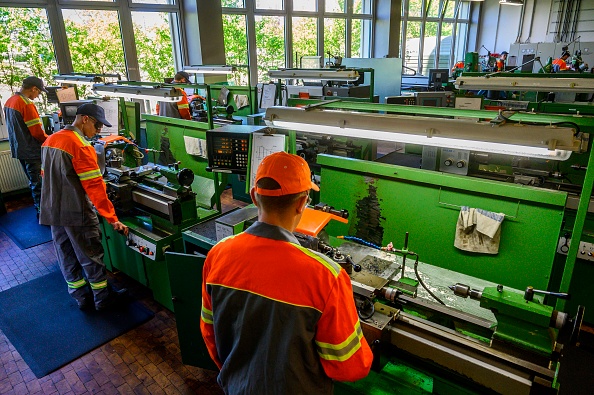German manufacturing stays firmly in contraction mode in August

Output in Germany’s struggling manufacturing sector contracted sharply in August, according to survey data released today, but beat economists’ expectations of a steeper fall.
Read more: German economy shrinks in second quarter as exports slump
A preliminary reading of the closely-watched manufacturing purchasing managers’ index (PMI) for August gave a score of 43.6, up from 43.2 in July. It was well below 50, however, which indicates contraction.
The manufacturing sector was held back by continued weakness in demand from abroad, according to statistics firm IHS Markit, who released the survey data.
IHS Markit said business confidence was depressed in August due to concerns about demand, heightened uncertainty, weakness in the car industry and geopolitical tensions. Expectations among manufacturers were at their weakest since mid-2012.
The manufacturing figures add to the gloom over Germany’s economy, which contracted by 0.1 per cent in the second quarter. The country’s central bank warned last week that the economy could already be in recession as factory weakness due to trade tensions and a global slowdown continues.
Germany’s service sector, spurred on by low unemployment and rising wages, has kept the economy from falling further into the red.
That trend was confirmed today with a services PMI reading of 54.4 for August, showing strong growth. It beat economists expectations of 54.0 and was only marginally below July’s reading of 54.5.
“Germany remains a two-speed economy, with ongoing growth of services just about compensating for the sustained weakness in manufacturing,” said Phil Smith, principal economist at IHS Markit.
“Although improving slightly, the survey’s output data haven’t changed enough to dispel the threat of another slight contraction in GDP in the third quarter.”
Read more: Germany sells 30-year bonds with negative yields but demand weak
“The sustained weakness in demand continues to filter through to the jobs market. Employment growth has now almost stalled.”
(Image credit: Getty)